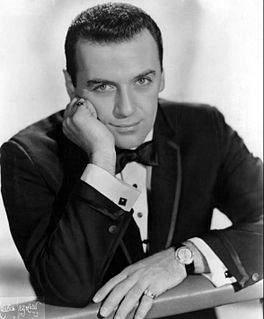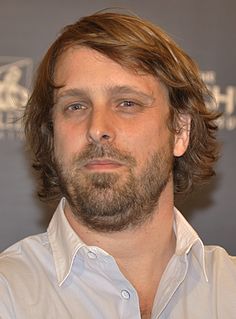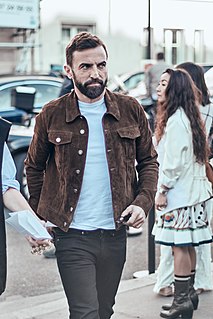A Quote by Marilynne Robinson
The loss of seriousness seems to me to be, in effect, a loss of hope. I think that the thing that made people rise to real ambition, real gravity was the sense of posterity, for example - a word that I can remember hearing quite often when I was a child and I never hear anymore. People actually wanted to make the world good for people in generations that they would never see. It makes people think in very large terms to try to liberate women, for example, or to try to eliminate slavery.
Quote Topics
Related Quotes
It makes me so angry when people say, "We never hear from people who are happy doing sex work." Well, that's because they're working. The activism privileges people who hated doing sex work, are no longer doing it, and have a job at a social service organization, for example, that trains them on how to speak to the media. We are hearing from those people quite a bit.
I like going to Burning Man, for example. That's an environment where people can try out different things. I think as technologists we should have some safe places where we can try out some new things and figure out what is the effect on society, what's the effect on people, without having to deploy kind of into the normal world.
I always felt like I could combine good pop songs that are easy for people to like with a real person and a real mind and integrity. So maybe I bring people into that pop world who don't usually find themselves there because there's not enough stuff for them to get excited about otherwise. I try to be genuine. I try to be real. It's such a subjective thing, but I try to convey an emotion.
I follow my instincts and I always think about what movie I would like to see. If I want to see it then I'm guessing that some other people might want to see it as well. I never try to think about what people will love or will like, because when you start to think for other people that's where you lose track of the real motivation.
I consider myself a logical person and, you know, a lot of people try to categorize me in one way or another. You know, there are some of the things that I say that probably would be considered very much non-conservative. But I don't think really conservative or liberal; I think: What makes sense? What's going to help the American people? What's going to give them what they need? Not only in health care but in terms of jobs, in terms of education, in terms of a whole host of issues.
When my parents realized that what I liked was fashion, they gave me good advice. I remember my father telling me that I should try to do an internship. They never said, "This is a world we don't know; it might be something strange," or "That is not serious," or things like that. They always said, "Try. We'll help you. We'll send drawings to people if you want. We'll write letters for you." What I'm very thankful for is they never made me think that something was impossible. They were really, really supportive. They are still.
Most people, if they think at all about the dictionary, think of it as this fixed object given to us from on high. It is the thing that legitimizes language and makes language real. You never think that it's actually compiled by living, breathing nerds like me. When you realize that it's compiled by people, it becomes a different thing, a different kind of document.
When you think about the abolition of slavery for example, for the ruling class with the rich white people owning plantations and states, and things like that, slavery was to their benefit. To oppose it didn't make any sense at all on a rational basis. But on a rights basis, on a principle basis, it made obvious, overwhelming sense.
Reading aloud sounds like a good idea, but honestly, it doesn't work very well. Good dialogue in a book doesn't actually bear much resemblance to real-life dialogue. For example, if you've ever seen a word-for-word transcript of people talking, it doesn't read off the page very well. The trick is to make it *seem* like it's being spoken, not to make it speakable.






































